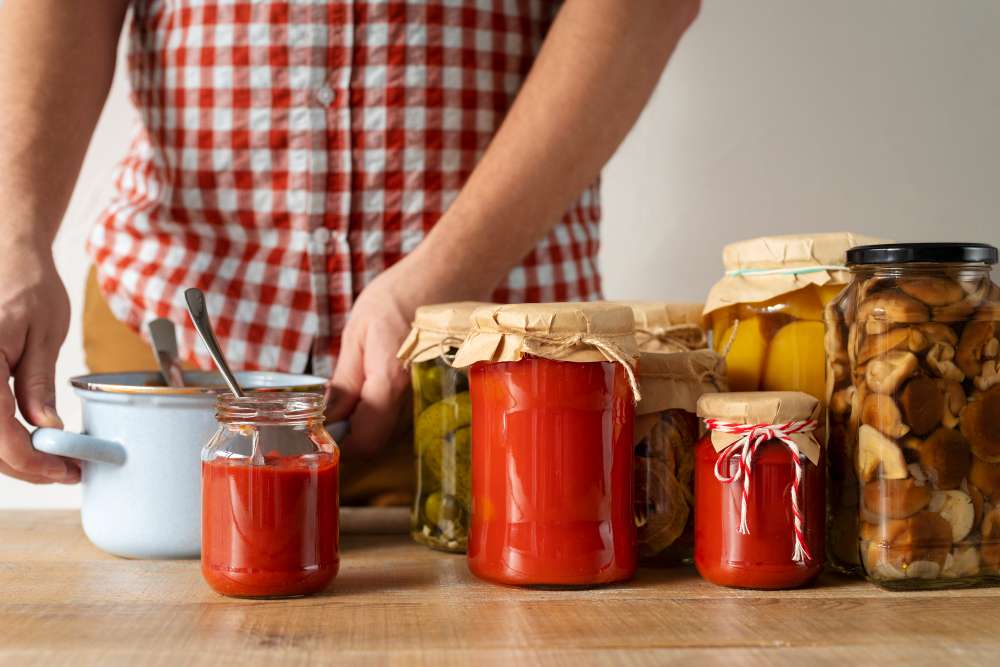In the game of sauces, few are as universally loved as catsup or ketchup. Whether you’re slathering it on a burger, dipping fries, or adding a blob to your comfort meal, it is a staple in almost every household. But recently foodies started a debate over the internet. They were concerned that does ketchup need to be refrigerated?
So Heinz Ketchup answered the question once and for all. That we should keep it in the fridge to maintain the best quality. So, in this article, we will find out some tips for ketchup storage.
Does Ketchup Need to Be Refrigerated?
Ever thought that are you storing your ketchup correctly? Typically they make it with a formulation containing a blend of vinegar, sugar, tomatoes, and various seasonings. These ingredients create an environment that is generally inhospitable to the growth of harmful bacteria. As a result, ketchup does have a certain degree of natural preservation, even without refrigeration. However, the debate over whether ketchup requires refrigeration has been ongoing for years.
Can Ketchup Go Bad in The Pantry?
So, ketchup does possess some inherent preservation qualities. Yet, it is important to consider the conditions in which we store it. If left unrefrigerated in a warm and humid environment, the quality of ketchup can deteriorate over time. Exposure to heat and air can lead to discoloration, separation of ingredients, and even changes in flavor. In extreme cases, mold growth can occur. So, while ketchup may not spoil as quickly as some other foods, its quality can deteriorate if not stored properly.
Why Should We Store Ketchup & Some Condiments in the Refrigerator?
The decision to refrigerate condiments like ketchup often comes down to a balance between preserving flavor and prolonging shelf life. Refrigeration slows down the chemical reactions that can cause the breakdown of ingredients and a deterioration in taste. Some condiments are more prone to spoilage. Hence we should definitely refrigerate such sauces that contain dairy or mayonnaise, for instance. For ketchup, refrigeration helps maintain its vibrant color, texture, and taste.
Heinz Settled the Debate About Storing Ketchup
Heinz, one of the most well-known ketchup manufacturers, has weighed in on the refrigeration debate. They recommend refrigerating ketchup after opening to ensure the best quality and flavor. While it’s true that ketchup contains preservatives that inhibit the growth of bacteria, these additives might not be able to prevent all types of spoilage or changes in taste and texture when exposed to less-than-ideal storage conditions.
Why Does Ketchup Sit on the Table in Restaurants?

You may have noticed that many restaurants leave bottles of ketchup on the table, rather than serving it cold from the fridge. This practice roots in the desire to amp up the overall dining experience. Cold ketchup can dull the flavors of hot foods like fries and burgers. By serving ketchup at room temperature, its flavors are more pronounced, complementing the dishes it accompanies.
Conclusion
In the grand ketchup storage debate, does ketchup need to be refrigerated? Heinz made the answer clear. While ketchup does contain shelf-stable additives, refrigerating it is the best way to maintain its quality over time. Whether you’re a fan of classic tomato ketchup or a more adventurous flavor variety, giving your ketchup a cozy spot in the fridge ensures that it’s ready to elevate your meals.
Frequently Asked Questions
What Happens If Ketchup Is Not Refrigerated?
Ketchup can still remain safe to consume if left unrefrigerated due to its natural preservatives. However, its color, flavor, and texture may deteriorate faster in warm and humid conditions.
Does Ketchup Need To Be Refrigerated After Opening?
Yes, food technologists recommend refrigerating ketchup after opening. Refrigeration helps preserve the quality, taste, and appearance of the condiment.
How Long Can You Refrigerate Ketchup After Opening?
We can generally keep an opened bottle of ketchup in the refrigerator for up to 6 to 12 months. However, for the best quality, experts advise to use it within a few months.
Is It Safe to Leave Ketchup on the Table in Restaurants?
Yes, it’s safe to leave ketchup on the table in restaurants. Restaurants often do this to enhance the flavor experience, as cold ketchup can dull the taste of hot foods.
Does Ketchup Have Natural Preservatives?
Yes, ketchup contains natural preservatives like vinegar and sugar, which help inhibit the growth of harmful bacteria.
Can Ketchup Go Bad?
While ketchup is less prone to rapid spoilage due to its preservatives, exposure to heat and air can cause its quality to deteriorate over time.